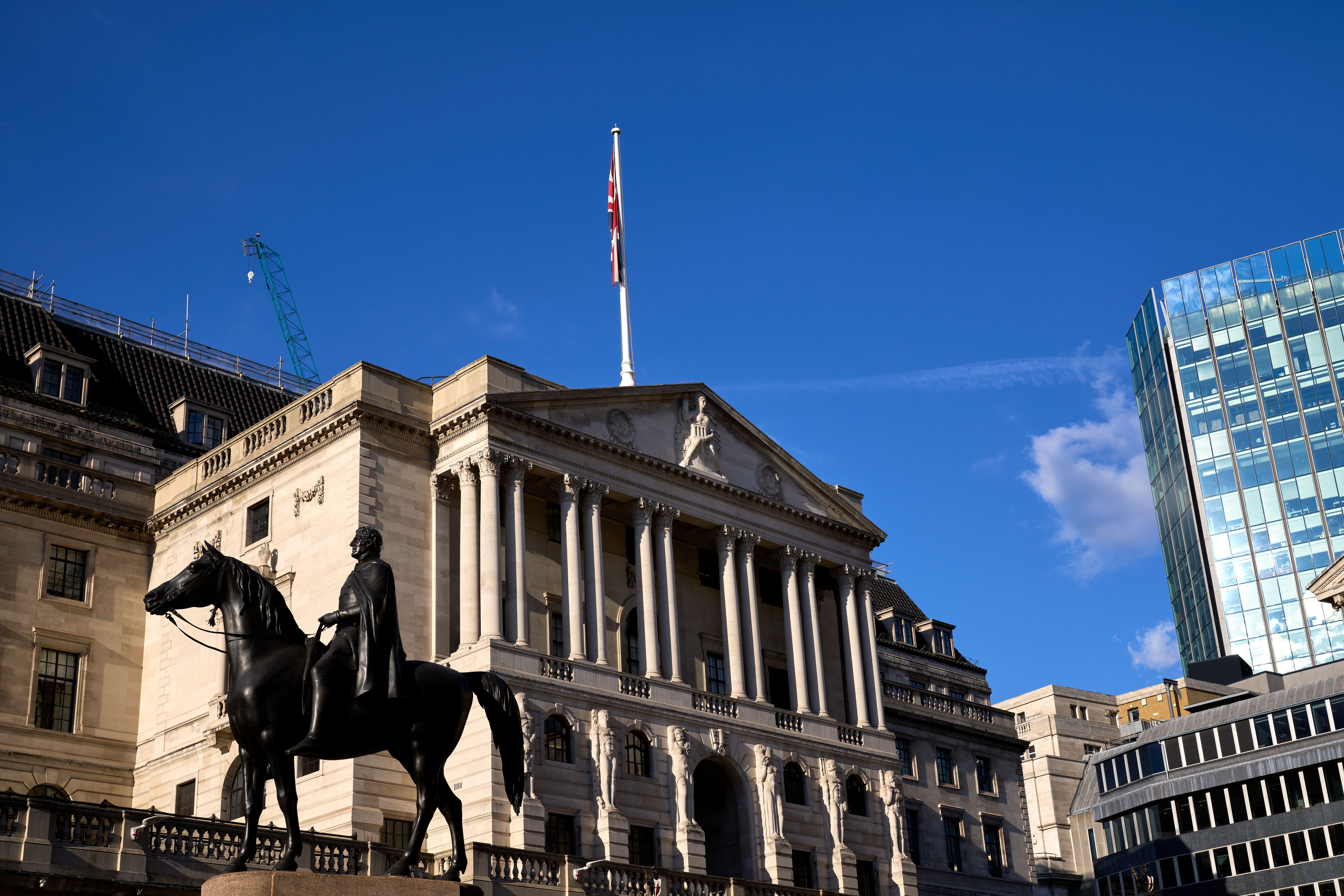Bank’s chief economist says UK economy still set to contract this quarter
Huw Pill said the latest GDP figures are ‘somewhat disappointing’ despite being an improvement on previous forecasts.

Your support helps us to tell the story
From reproductive rights to climate change to Big Tech, The Independent is on the ground when the story is developing. Whether it's investigating the financials of Elon Musk's pro-Trump PAC or producing our latest documentary, 'The A Word', which shines a light on the American women fighting for reproductive rights, we know how important it is to parse out the facts from the messaging.
At such a critical moment in US history, we need reporters on the ground. Your donation allows us to keep sending journalists to speak to both sides of the story.
The Independent is trusted by Americans across the entire political spectrum. And unlike many other quality news outlets, we choose not to lock Americans out of our reporting and analysis with paywalls. We believe quality journalism should be available to everyone, paid for by those who can afford it.
Your support makes all the difference.A flatlining economy is “somewhat disappointing” but still a significant improvement from the Bank of England’s previous forecast of a deep and prolonged recession, its chief economist has said.
But the UK is still expected to contract by 0.1% in the first quarter of this year.
Huw Pill, speaking at a panel event with Market News International Connect, referenced the latest official gross domestic product (GDP) figures which showed there was no growth in the economy in February.
Last summer we were forecasting a pretty deep and certainly a very prolonged recession in the UK. Relative to that, the flatlining of the economy... is a quite significant improvement
He said: “Activity in the UK remains subdued, as the level of GDP was flat over the month in February.
“Bank staff continue to expect GDP to decline by 0.1% in the first quarter of 2023, as had been projected in the February Monetary Policy Report.”
But the influential economist, who is a member of the Bank’s Monetary Policy Committee which sets interest rates, pointed out that the situation had improved since previous forecasts.
“Last summer we were forecasting a pretty deep and certainly a very prolonged recession in the UK,” he said.
“Relative to that, the flatlining of the economy that we are seeing, in terms of the evolution of GDP, is a quite significant improvement.”
He added that the Bank had taken a more negative view in the face of a “very dramatic rise in European gas prices”, and when Britain was in the midst of appointing a new prime minister.
“More recently, we have seen a significant fall in gas prices,” he said.
Nevertheless, Mr Pill said the latest GDP data was “somewhat disappointing”, even if it was an improvement on last year’s expectations.
Mr Pill also said pay growth has slowed and unemployment is expected to ease amid signs of “labour hoarding” across the national workforce.
He said there was a “more clear sign” of wage growth taking a turn, but added that pay rates may be “getting a little bit stuck above the inflation target” in terms of pre-pandemic developments.
It follows warnings from Bank governor Andrew Bailey that if employers raise wages above inflation it could help “lock in” higher rates.
Mr Pill added: “We do expect to see less of a rise in unemployment now than we had previously, and that is partly because, given the experience of recruiting difficulties, we do expect more labour hoarding-type behaviour in the corporate sector.”
It suggests employers are trying to hold on to staff amid concerns of shortages in the national workforce.
Subscribe to Independent Premium to bookmark this article
Want to bookmark your favourite articles and stories to read or reference later? Start your Independent Premium subscription today.